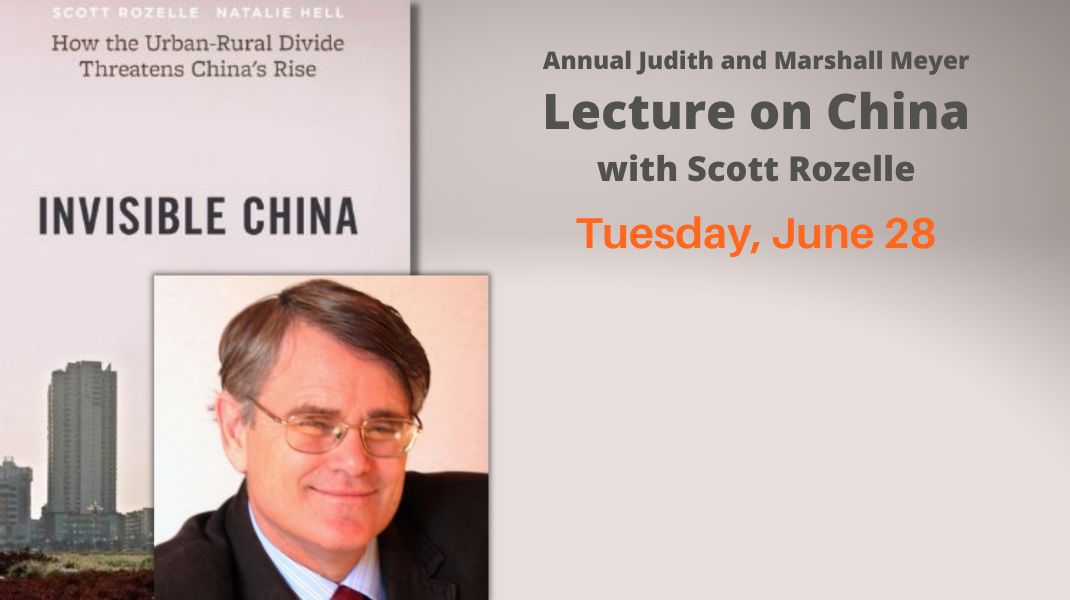with Dr. Scott Rozelle
Join us for the annual Judith and Marshall Meyer Lecture on China with Dr. Scott Rozelle.
China’s growth has relied heavily on unskilled labor. Most of these workers have never been to high school. While this national growth strategy has been effective for three decades, employment in manufacturing and construction is now falling. Drawing on national datasets and the author’s own surveys, the talk will show that the labor force’s low levels of human capital is making it impossible for many unable to find work in the formal workplace. The presentation also will demonstrate that the labor market is now experiencing a reversal in the unskilled wage which could portend the start of economy-wide polarization. Coupled with low levels of social protection, the fact that around 900 million people in China are low income means that the nation’s strategy to stimulate demand may be challenging.
Register to join us in person, or watch live or later on Vimeo. Click here to watch online. A book signing with Iconoclast Books will follow the presentation.
Scott Rozelle holds the Helen Farnsworth Endowed Professorship at Stanford University and is Senior Fellow in the Food Security and Environment Program and the Shorenstein Asia-Pacific Research Center, Freeman Spogli Institute (FSI) for International Studies. He is also the author, with Natalie Hell, of Invisible China: How the Urban-Rural Divide Threatens China’s Rise. His research focuses on agricultural economics, development economics and the economics of poverty—with an emphasis on the economics of education, health and early childhood development (ECD). Rozelle is the co-founder aand co-director of the newest Center at Stanford University, the Stanford Center on China’s Economy and Institutions (SCCEI). He also is the founder and director of one of SCCEI’s main initiatives, the Rural Education Action Project (REAP), an organization at Stanford University that seeks to evaluate China’s new education, health and ECD programs and have an impact on policy. He is fluent in Chinese and has established a research program of nearly 40 years in which he has close working ties with Chinese collaborators and policy makers.

